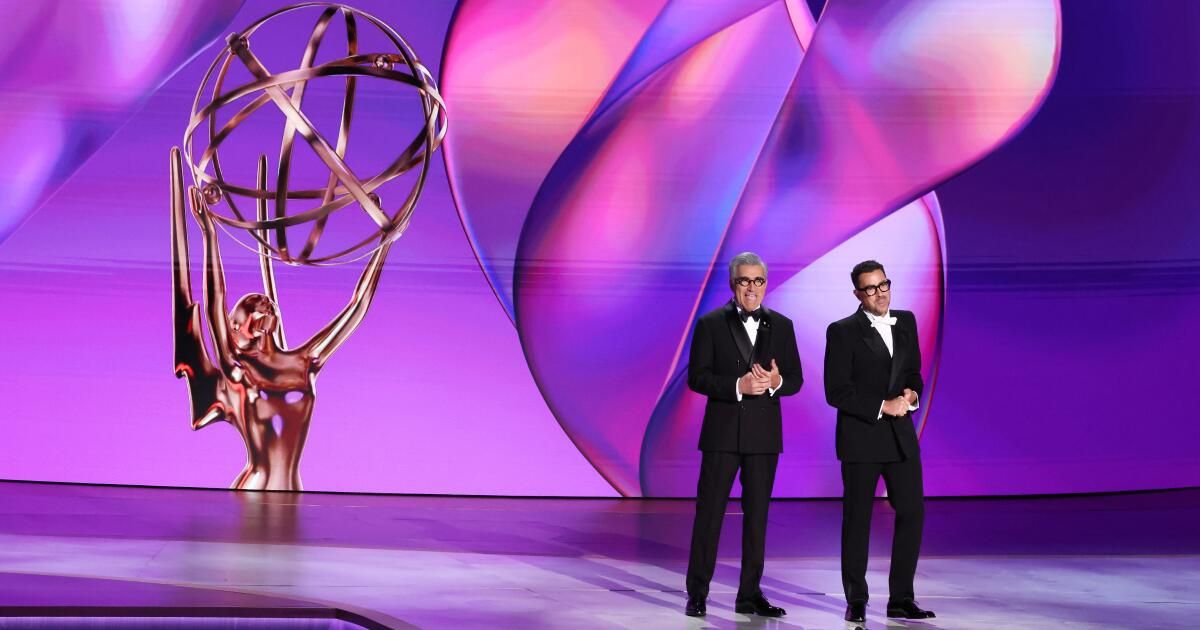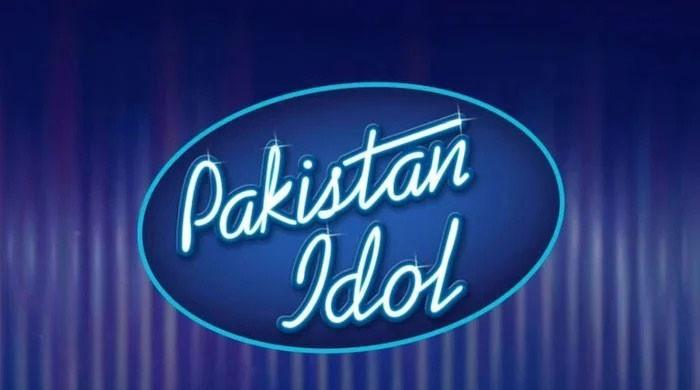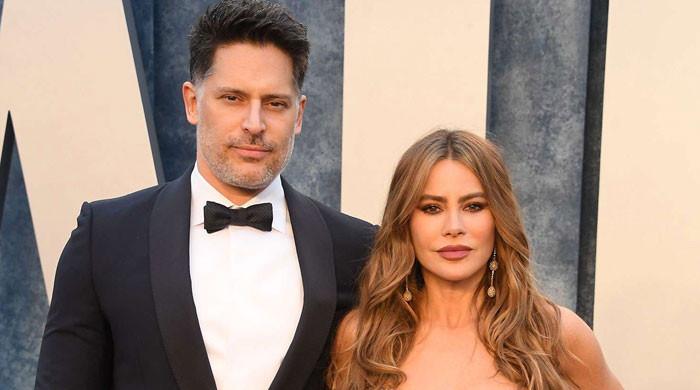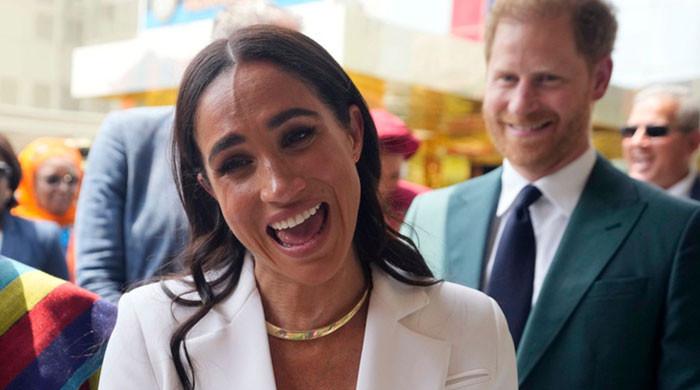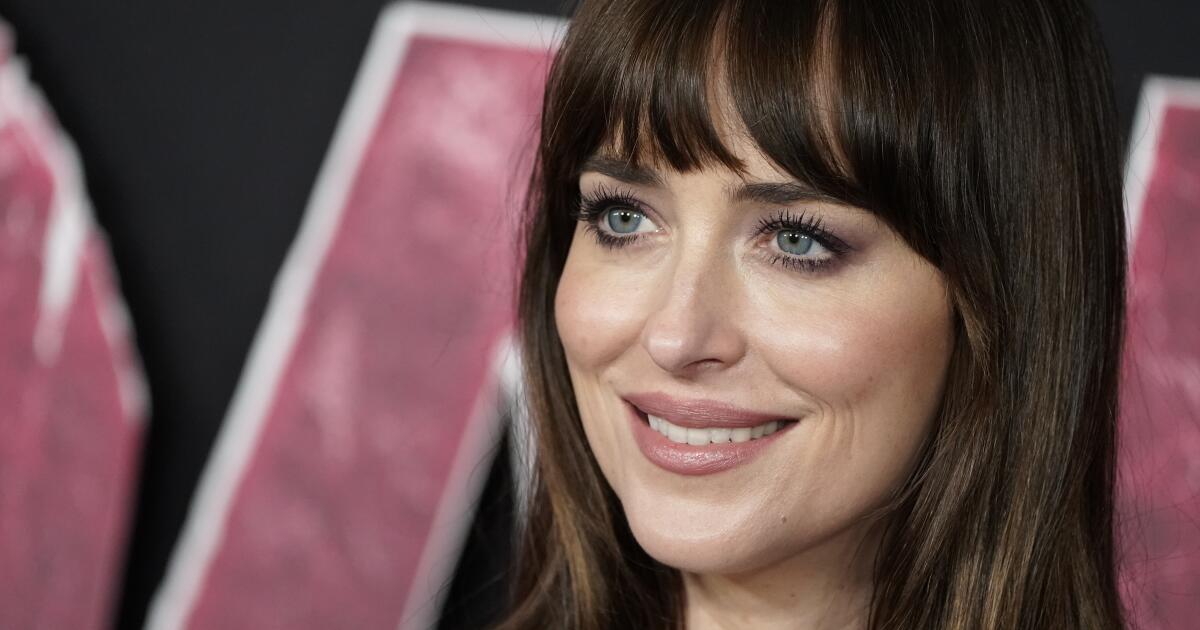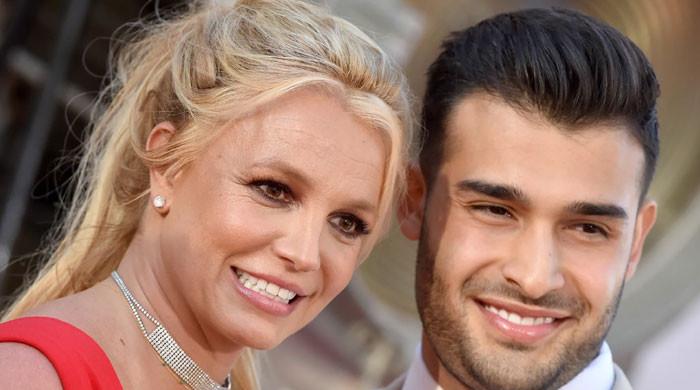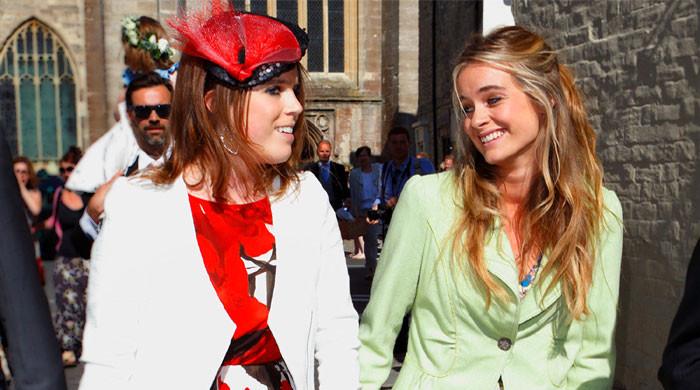On Sunday night, the 76th Primetime Emmy Awards aired from the Peacock Theater, and let's take a moment to appreciate the fact that there have been 76 of these awards. Three-quarters of a century! Seventy-six years before the first Emmys, whose host, Walter O'Keefe, would become a minor joke throughout the evening, not only was there no television, but there were no movies, no radio, no recording industry. There were 37 states.
But most importantly, this year's award was the first to feature Eugene and Dan Levy as co-hosts.
These events are better and worse variations on a well-worn model, interesting mostly in the minor ways they depart from the telecasts of years past — with the exception of 2020, the lockdown Emmys, which were also the Emmys when “Schitt’s Creek,” the co-creation co-starring the Levys, swept the comedy awards.
On Sunday night, they walked onto the stage without much fanfare, in their tuxedos (crossed for Eugene) and matching eyebrows, and welcomed us to the Emmys, “aka broadcast television’s biggest night to honor movie stars on streaming services,” and got down to business.
Will Smith (no, not the movie actor) accepting the award for best writing for a drama series for “Slow Horses.”
(Robert Gauthier/Los Angeles Times)
When I spoke to the hosts before the event, Dan said, “We’re going to keep it light and bright,” and Eugene said, “You want to keep it funny, but maybe it’s a kinder, gentler approach.” And this was one of the least acerbic awards shows I can recall, with few jokes at the expense of the actors or the shows, aside from one about “The Bear” being a joke-free comedy. While it was free of controversy, unfortunate jokes and physical fights (“Despite my name, I come in peace,” said “Slow Horses” creator Will Smith), it wasn’t boring — more what I’d call casually interesting, like watching beautiful scenery go by. Overall, it was a sweet, positive spectacle that at the same time avoided the air of self-congratulation that often surrounds such events.
The father-son dynamic — affectionate, but full of doubt — was at the heart of their time shared on stage, with Dan, the more modern son, and Eugene, the slightly confused father. They joked that their Canadian friendliness would make it difficult to take on the winners, and that Eugene, in particular, was feeling the pressure. “The man is more fragile than he looks,” Dan said. “He gets palpitations from time to time.”
In fact, age was a topic of the night. “Even though we are on ABC, [76-year-old] “Emmy’s watching CBS,” Dan joked in reference to the latter’s demographic, and assumed Eugene would be excited about the new “Matlock” reboot because he’s in the “in the know” demographic. When host Billy Crystal got a reaction from the audience after mentioning that it had been 50 years since his first talk show appearance, he asked, “Are you guys applauding that I’m old?” Selena Gomez described co-hosts Steve Martin and Martin Short as “two guys who are a long way from being childless cat ladies.”
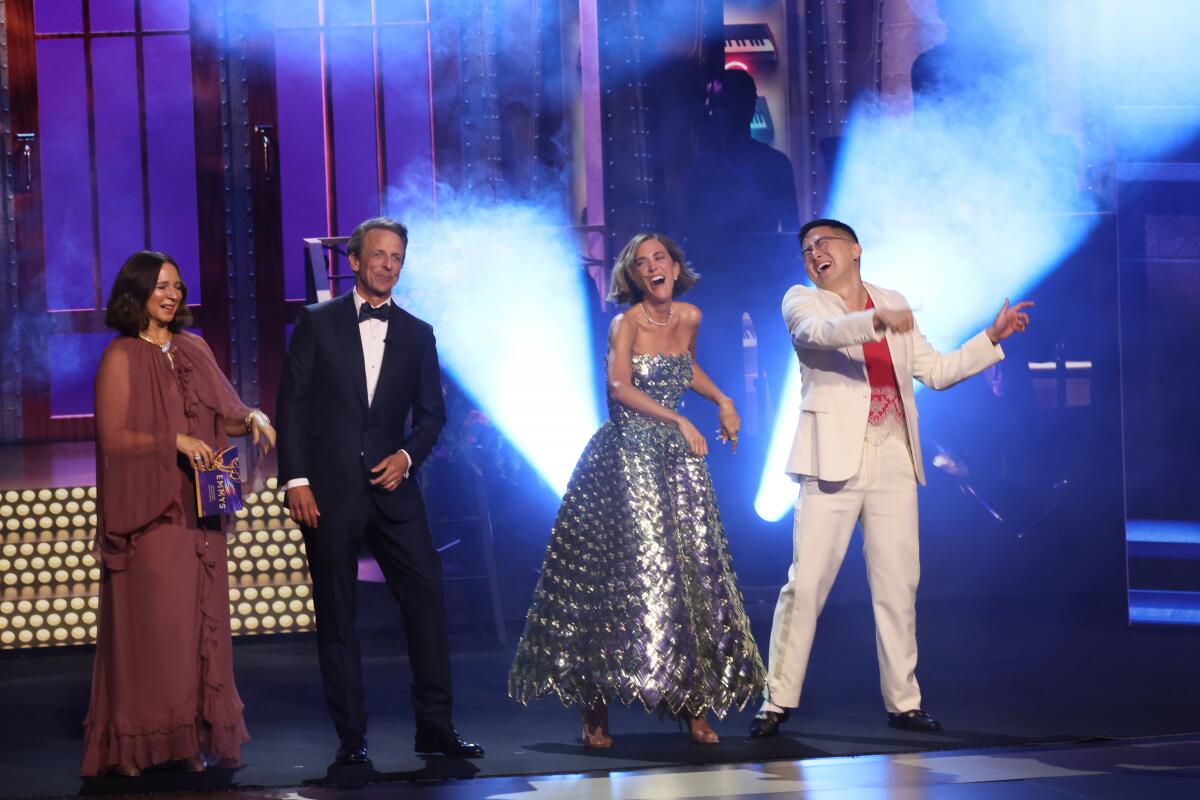
From left, Maya Rudolph, Seth Meyers, Kristen Wiig and Bowen Yang in an Emmy segment celebrating the 50th anniversary of “Saturday Night Live.”
(Robert Gauthier/Los Angeles Times)
As usual, nostalgia was woven into the fabric of the evening. A repeat segment, which was not very successful, featured groups of actors who had played teachers, cops, lawyers, doctors, coaches, villains, TV moms and dads, respectively, who, after some thematic banter, went on to present an award. We had a “West Wing” “reunion,” a quartet of “Saturday Night Live” actors (not quite ready for prime time) — Seth Meyers, Kristin Wiig, Maya Rudolph and current actor Bowen Yang — to celebrate the show’s upcoming 50th anniversary, and Ron Howard and Henry Winkler, with a suggestion of a “Happy Days” set. There was nothing extraordinary about seeing them together, but the segment they performed did allow — or require — Winkler to hit a jukebox and make a half-hearted “Eeh,” or whatever you spell that sound Fonzie used to say. Still, the whole concept underlined the time element ever present in such shows, with its mix of elder statesmen and bright young stars, beloved or unrecognizable to various segments of the audience.
Of course, time is most vividly displayed in the in memoriam segment. Typically, it’s a much-criticized mess in which the deceased being honored are half-hidden behind the performer the producers have chosen to sing an inspirational song (this year it was Jelly Roll and his “I Am Not Okay”). For once, the event was handled deftly, with photos of the deceased separated from images of the singer. Bob Newhart’s final face gave way to a beautiful tribute from Jimmy Kimmel, who has a special talent for speaking, or at least appearing to speak, without thinking. (“He didn’t have reach, he didn’t need to have reach.”)
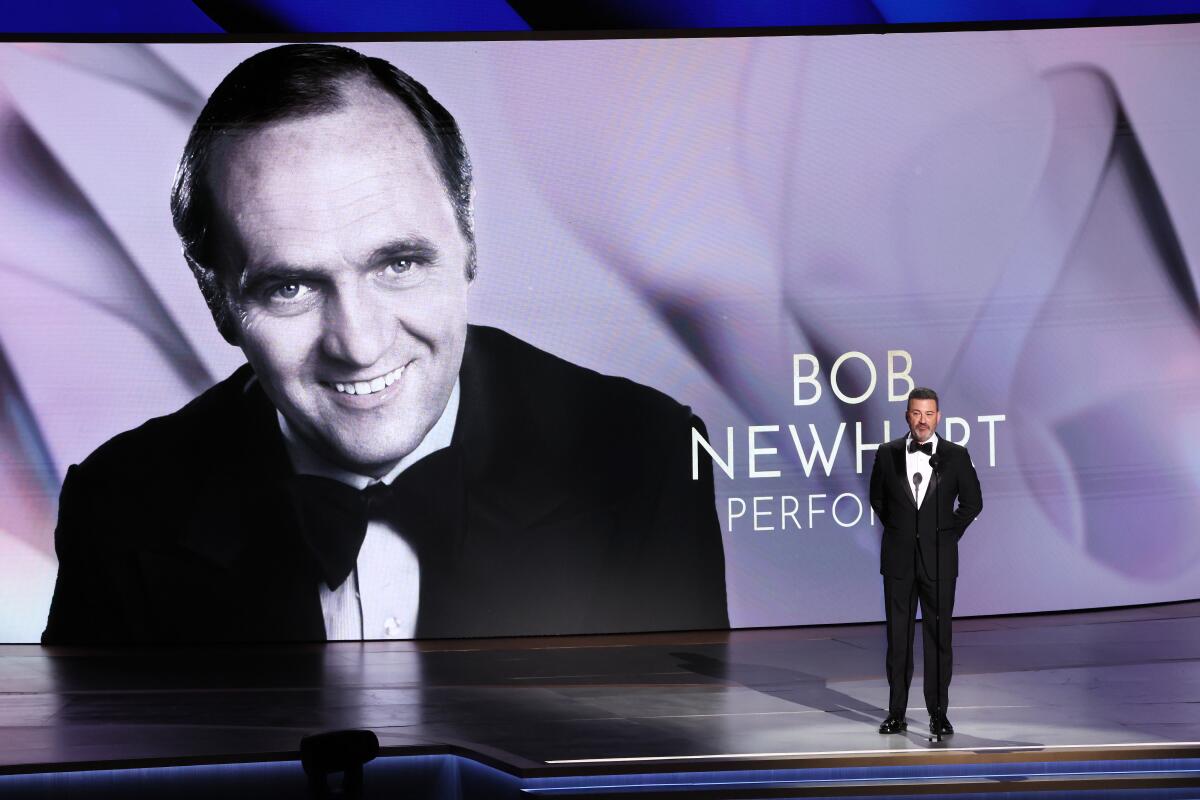
Jimmy Kimmel spoke about legendary actor and comedian Bob Newhart, who passed away in July, during the in memoriam segment.
(Robert Gauthier/Los Angeles Times)
A diversity block of sorts began with a white-tuxed John Leguizamo declaring, “I’m one of Hollywood’s DEI hires” — DEI standing for diligence, excellence and imagination, by which criteria, he said of the assembly, “we’re all DEI hires.” He went on to speak of the days when Latinos rarely played Latinos and available characters were limited to “the hottie, the Latino lover, the maid, the gangbanger.” (“I used to watch ‘Star Trek’ and think, ‘Wow, there’s not going to be any Latino people in the future.’”)
Acknowledging progress, the actor, who placed an ad in the New York Times imploring the Academy to attract more Latinos to the industry, noted that “it turns out that not complaining doesn't change anything. What I see here tonight makes me almost happy and certainly less angry.”
Leguizamo introduced Cris Abrego, the Television Academy’s first Hispanic president, who spoke in favor of inclusion and handed the floor to Matt Bomer and Joshua Jackson, who introduced Governors Award honoree Greg Berlanti, who spoke about being a closeted gay kid, in a time before the Internet and support groups, when the only way you could tell if someone was gay “was if they also watched ‘Dynasty’ and ‘Dallas’ and could name all four ‘Golden Girls.’”
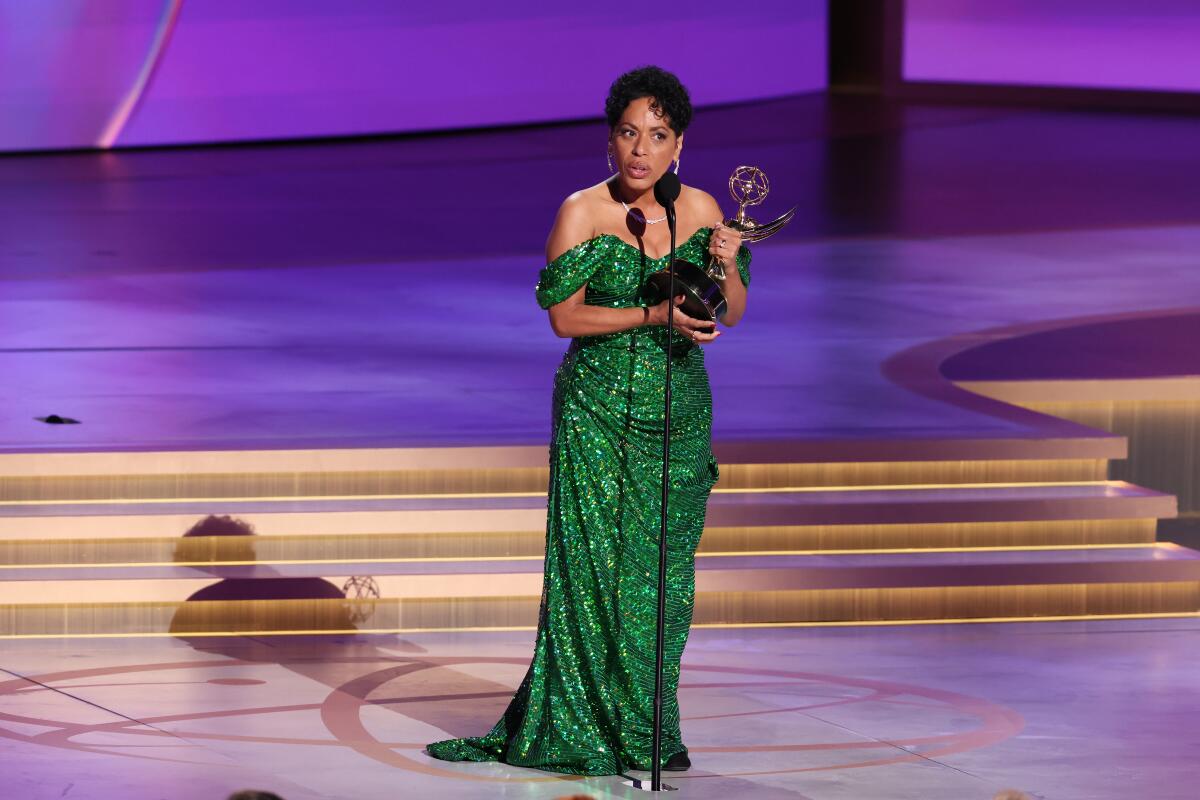
Liza Colon-Zayas implored viewers to vote during her acceptance speech for supporting actress in a comedy for “The Bear.”
(Robert Gauthier/Los Angeles Times)
As for the political world that raged outside the theater, there were some winks. “To all the Latinos who love to love me, keep believing and vote, vote for your rights,” said Liza Colón-Zayas, who won best supporting actress in a comedy for “The Bear,” in her acceptance speech. The “West Wing” reunion did note real-world stories that its writers “would have found far-fetched, if not downright ridiculous.” And Candice Bergen highlighted recent events, recalling the controversy sparked by then-Vice President Dan Quayle over his character on “Murphy Brown,” who was raising a child as a single woman. “Oh, how far we’ve come,” Bergen said. “Today, a Republican vice presidential candidate would never attack a woman for having children. So, as they say, my job here is done. Meow!”
If anyone doubted that the Levys would be the only 2020 comedy winners on stage Sunday, they were finally disabused of that notion. Annie Murphy, Dan’s fictional sister and Eugene’s fictional daughter, was spotted standing with them before the night’s final awards show, for best comedy, and after some banter, Catherine O’Hara, as glorious as ever, appeared to present the Emmy, with an envelope taped to her back, which she pulled out after tearing the one she was holding in her hand (“Do we really have to pick just one winner?”). The award went to “Hacks,” as if to continue a theme, a series starring (Emmy winner) Jean Smart, 73, and Hannah Einbinder, 29.
And throughout the broadcast, 91-year-old nominee Carol Burnett was repeatedly chosen by the audience and had a great time. All in all, it was a Carol Burnett Enjoys Herself Immensely evening.

